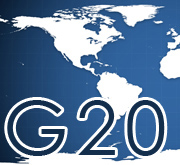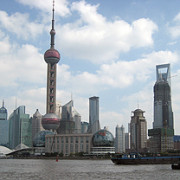Archive | February, 2014
Regional cooperation and integration
 Governance and public sector management
Governance and public sector management

G20 and international economic policy coordination

When G20 Leaders met in April 2009 they agreed on coordinated fiscal stimulus in response to the unfolding financial crisis. This explicit coordination addressed the concern that any one country’s stimulus would largely flow overseas through the external account, benefitting the global economy but not doing much to boost domestic demand. This concerted stimulus seems to have been successful. In the face of a dramatic collapse in financial systems in much of the advanced world the fiscal stimulus put a floor under contracting GDP. The People’s Republic of China’s (PRC) huge stimulus produced a swift return to 10% growth in 2010.
Why is the PRC showing signs of overheating despite slowing economic growth?

The People’s Republic of China’s (PRC) economy has shown signs of overheating despite a sharp slowdown in economic growth, suggesting that, constrained by the supply of labor, its potential growth rate might have fallen significantly from its past level. With the priorities of the PRC’s authorities shifting from raising economic growth to curbing inflation, they are expected to change their stance on macroeconomic policy, including monetary policy, from easing to tightening. As a result, the PRC economy is likely to slow in 2014.


Search
Subscribe / Connect to Asia Pathways
Subjects
- Agriculture and natural resources
- Blog
- Capacity development
- Climate change
- Economics
- Education
- Energy
- Environment
- Finance sector development
- Gender
- Governance and public sector management
- Health
- Industry and trade
- Information and Communications Technology
- Infrastructure
- Miscellaneous
- Population
- Poverty
- Private sector development
- Regional cooperation and integration
- Sanitation
- Social development and protection
- Transport
- Uncategorized
- Urban development
- Video Blog
- Water
Recent Posts
- Artificial intelligence: A new driver for inclusive growth and development?
- Increasing trust in cross-border e-commerce and artificial intelligence
- Enhancing access to maternal and newborn healthcare in developing Asia
- Can electric vehicles lead the way to a sustainable future?
- Mitigating climate-related sovereign risk to accelerate action on the climate emergency




Recent Comments